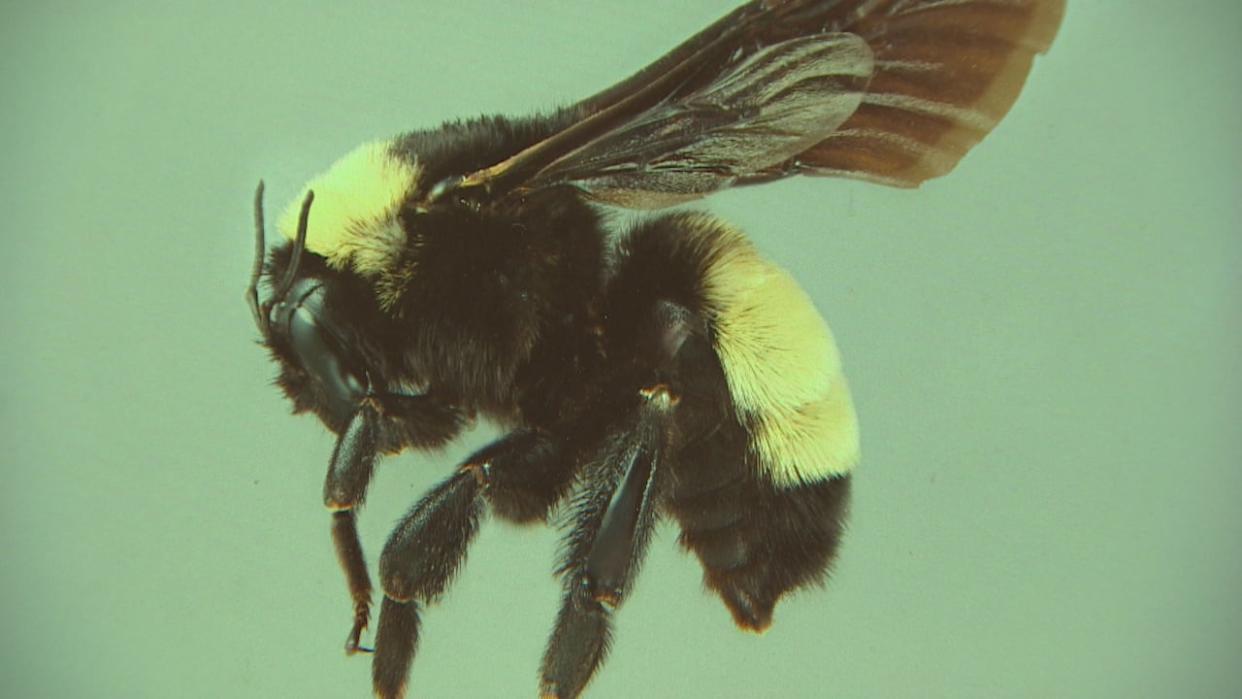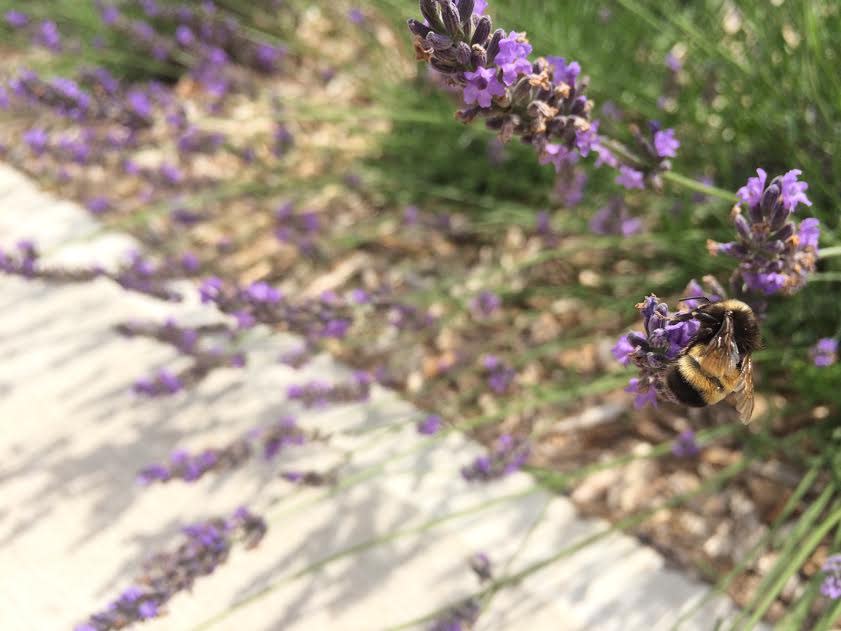Bumblebee populations under threat as nests overheat due to climate change, U of G researchers find

As the world's bumblebee population continues to decline, new research from the University of Guelph is pointing to global warming as a major contributor to the demise of the critical pollinators.
Peter Kevan, lead researcher and professor emeritus at the university, says if bumblebees — which nest communally like honey bees — can't adapt to rising temperatures, they would have problems reproducing.
"If temperatures in the surrounding area get too cold, they can withstand a certain amount of chilling, but it seems that if things get too hot, that becomes rather critical very quickly," Kevan said on CBC K-W's The Morning Edition.
"Above about 36 C in the nest, it's probable that is lethal to the larval bumblebees and so the result is the colony will start to collapse, its social structure will break down as fewer workers are produced for foraging.
"Also, there will be the death at certain times of the year when the sexual larvae are being produced and then go out and the males mate with the new queens and that lays the foundation for the next year's generation," he added.

This photo of a yellow-banded bumblebee was taken at the Terre Blue lavender farm southeast of Guelph. (Victoria MacPhail)
Bumblebees usually maintain a consistent temperature of around 28 to 32 C no matter where the bees are in the world.
Kevan said that from northern Ellesmere Island and northern Nunavut, all the way into the tropics, all the species of bumblebees that have been researched seem to incubate their brood at about the same temperature.
"It seems to be a fairly constant thing no matter what species, no matter what part of the world one is looking at," he said.
Kevan's study into climate change and its impact on bumblebee nests has been published in the journal Frontiers in Bee Science.
The researchers have called for more research to be done urgently into how bumblebees can survive rising temperatures.
In 2019, a team of researchers at York University warned that the American bumblebee is facing imminent extinction from Canada, and this could lead to "cascading impacts" throughout the country.
Professor Laurence Packer said then, that quite a few of the 42 species of bumblebees in Canada are exhibiting substantial declines.
"We've got a situation where ... the number of species that you can find in an area has decreased," he said.
"These kinds of declines in important pollinators are going to have cascading impacts throughout the entire ecosystem."


